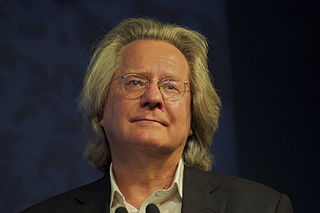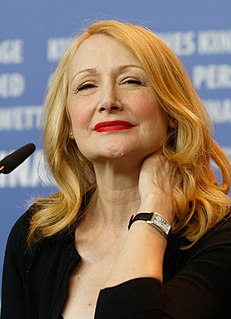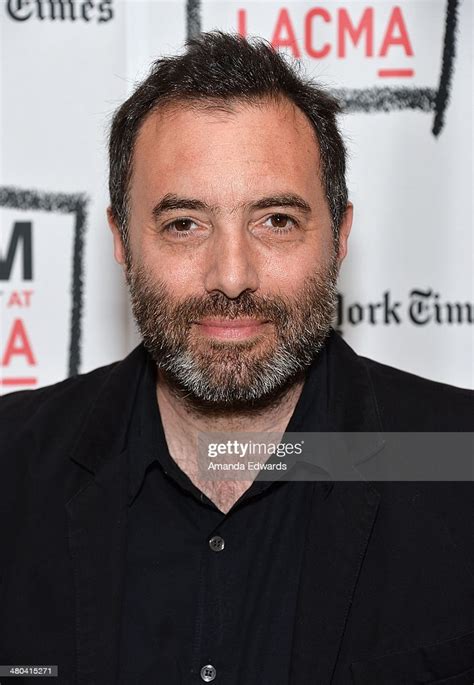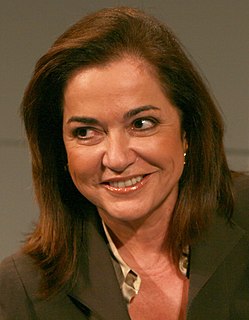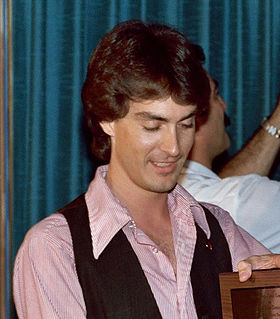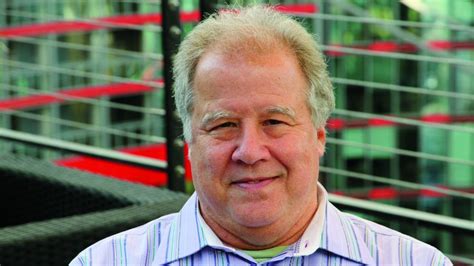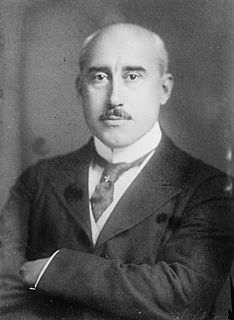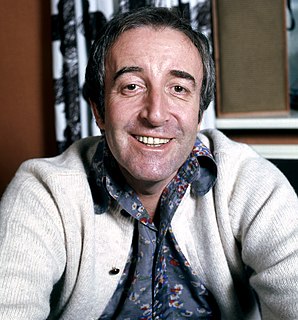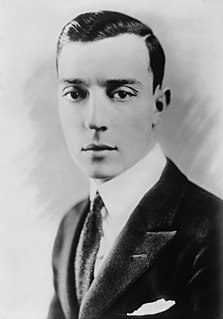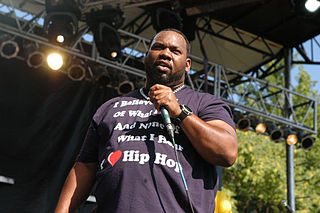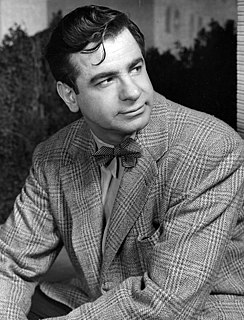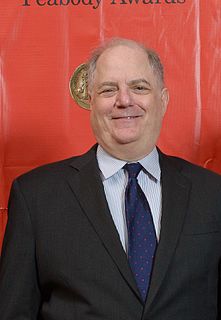Top 1010 Critic Quotes & Sayings - Page 17
Explore popular Critic quotes.
Last updated on November 4, 2024.
Eagleton has spent his life inside two mental boxes, Catholicism and Marxism, of both of which he is a severe internal critic—that is, he frequently kicks and scratches at the inside of the boxes, but does not leave them. Neither are ideologies that loosen their grip easily, and people who need the security of adherence to a big dominating ideology, however much they kick and scratch but without daring to leave go, hold on to it every bit as tightly as it holds onto them. The result is of course strangulation, but alas not mutual strangulation: the ideology always wins.
At the core, I am an actress. And I think, in a way, that's a good thing in that I am, I think, empathetic and sympathetic to the film. I would never pretend to have the discerning and acute critical eye that a lot of the great critics in our business do have. I don't look at it as being a critic or placing a judgment on a film, and I do think, how do you decide which film is best anyway? It's always a little bit of a mixed bag. But, I think it is just a collective group of people coming together to honor the work of an artist - that's how I think of it.
I am being bombed by questions of all kinds. I will try to be very concise and try to explain to the American people. We had a great number of mistakes in the economic fleld, naturally. I am not the critic. It is Fidel Castro, the one who has criticized repeatedly the mistakes we have made, and he explained why we have made them. We did not have a previous preparation. We made mistakes in agriculture. We made mistakes in industry. All these mistakes are being settled now.
We're all so jaded. We've seen so many movies. We know what's going to happen in every single movie. I mean, there are some movies where I'm like why do I even need to keep watching? And so, if you can make a movie in which you're completely surprising the audience left and right, and left and right, then you've won. If a jaded film critic or reporter or an audience is like, "I didn't see that one coming," that to me is like a victory.
A writer writes a book. People read it. You don't know what they're reading, really. You read a review and think, "That is so inaccurate. You can't have been reading my book with any kind of attention, because that is all wrong, that's even the wrong name you're including there." But these reviewers have been diminished in importance, the work is so little respected. If you're reviewed by a real critic, by James Wood or Louis Menand, then you get something that is informed, interesting, and highly articulate. But the average review doesn't have that kind of depth anymore.
Being critical of art is a way of showing art respect. No sports writer would say, "Well the Yankees had a great season this year." No food critic would get a bad meal and say, "Oh, it was so lovely." It always strikes me as odd when people say, "Why do you write negatively about any art?" I think that everybody has mixed feelings about everything - even Goya. I mean, I look at Rembrandt sometimes and I hear a voice in my head go, "It's pretty brown."
I don't think we need a critic to negotiate with the audience. People say, "Who are you writing for?" I'm writing for myself but my audience is anybody who knows how to read. I think a story should engage anybody who knows how to read. And I hope that my stories do, maybe on a different level for more sophisticated readers than, say, a high school kid, but still a story has got to grab you. That's why we read it.
That's something you can't get off the wires in New York is people providing intelligent coverage of what your theater company in Podunk is up to. Many of the people who write what we call amateur criticism are professionals in anything other than name and receiving a paycheck. Very often, they know more than the professional critic who might be writing for their local newspaper. So, really, I'm all for it. It's changing the playing field, it's shaking things up, it's going to make the critical environment a healthier environment.
I have always been accused of taking the things I love – football, of course, but also books and records – much too seriously, and I do feel a kind of anger when I hear a bad record, or when someone is lukewarm about a book that means a lot to me. Perhaps it was these desperate, bitter men in the West Stand at Arsenal who taught me how to get angry in this way; and perhaps it is why I earn some of my living as a critic – maybe it’s those voices I can hear when I write. ‘You’re a WANKER, X.’ ‘The Booker Prize? THE BOOKER PRIZE? They should give that to me for having to read you.
There is no magic. Harry Potter was probably the last one. There are no Harry Potters in politics. There are people who should be hard working, admit their mistakes - and we made a lot of mistakes - make an honest self-critic but change what we did wrong. What did we do wrong? We built a state which is big, which is corrupted, which is a state which should radically change. What is Mr Tsipras saying - keep it as it is, so everything that is old belongs to him.
Well, I do expect a lot of myself. I'm a harsh critic because I know what I'm capable of. I have hit those occasional peaks amongst the valleys, but the peaks are so few-things like genuine flashes of virtuoso brush inking, like I've never executed before or since-I can count on one hand the number of jobs where I've been able to hit that mark. The same with penciling. Sometimes it just flows, but more often than not, it's pure physical and spiritual torment just to get something decent on paper. I often get very discouraged with the whole creative process.
Erasmus dramatizes a well-established political position: that of the fool who claims license to criticize all and sundry without reprisal, since his madness defines him as not fully a person and therefore not a political being with political desires and ambitions. The Praise of Folly, therefore sketches the possibility of a position for the critic of the scene of political rivalry, a position not simply impartial between the rivals but also, by self-definition, off the stage of rivalry altogether.
To the scientists of the Renaissance, your critic was really your ally, helping you advance upon reality. Critics in science are not like drama critics, determining flops and successes. Criticism to scientists is just another means of finding out whether they're wrong, like running another experiment to see if it confirms or refutes a theory. Along with the advocacy principle of the courtroom, It is one of the best ways human beings have evolved to get closer to the truth.
When I started I had no knowledge of films whatsoever. I was an engineering major at Stanford. And I found out as a senior that they had two film critics on the Stanford Daily, and they got free passes to all the theaters in Palo Alto. So I thought, I'll do that, and I became a film critic. And then I became interested in films. But I had no time to study anything in that area because I was a senior, just finishing up as engineering.
God should be most where man is least: So, where is neither church nor priest, And never rag nor form of creed To clothe the nakedness of need,- Where farmer folk in silence meet,- I turn my bell-unsummoned feet; I lay the critic's glass aside, I tread upon my lettered pride, And, lowest-seated, testify To the oneness of humanity; Confess the universal want, And share whatever Heaven may grant. He findeth not who seeks his own, The soul is lost that's saved alone.
Excellent Sheep is likely to makea lasting mark for three reasons. One, Mr. Deresiewicz spent twenty-four years in the Ivy League, graduating from Columbia and teaching for a decade at Yale.He brings the gory details. Two, the author is a striker, to put it in soccer terms. He's a vivid writer, a literary critic whose headers tend to land in the back corner of the net. Three, his indictment arrives on wheels: He takes aim at just about the entirety of upper-middle-class life in America.Mr. Deresiewicz's book is packed full of what he wants more of in American life: passionate weirdness.
Virgil Thomson, the great classical music critic, who was also a composer, but said that criticism was the only antidote he knew to pay publicity. Critics at their best are independent voices people take seriously their responsibility to see as many things as they can see, put them in the widest possible perspective, educate their readers, I really do think of myself as a teacher. Newspapers that don't carry arts criticism at all while not fulfill this function. And probably their arts journalism will be deprived as a result.
I guess it really didn't even dawn on me that you could be a rock critic as a job until I was maybe almost out of college. I knew criticism existed. I read Rolling Stone and Spin. Siskel and Ebert were on television. But I had absolutely no idea how to get that kind of life. And moreover, it didn't interest me that much. I just sort of read normal books growing up. I wasn't that media-conscious. I felt like the one thing I was able to do was to listen to a record and decide whether I liked it.
The idea that you waited for that particular issue to come out, but then you planned your TV viewing for the coming season, it was a completely different world. And I grew up in Fort Lauderdale, so there was a TV critic writing for the Miami Herald, Jack Anderson, that was very influential. Just to read, every morning, somebody who cared about TV as much as I did - they were an adult, and they were clearly being paid for it. That was an "a ha!" moment for me before I was even 10.
A certain critic -- for such men, I regret to say, do exist -- made the nasty remark about my last novel that it contained 'all the old Wodehouse characters under different names.' He has probably by now been eaten by bears, like the children who made mock of the prophet Elisha: but if he still survives he will not be able to make a similar charge against Summer Lightning. With my superior intelligence, I have out-generalled the man this time by putting in all the old Wodehouse characters under the same names. Pretty silly it will make him feel, I rather fancy.
When modernist poetry, or what not so long ago passed for modernist poetry, can reach the stage where the following piece by Mr. Ezra Pound is seriously offered as a poem, there is some justification for the plain reader and orthodox critic who shrinks from anything that may be labelled 'modernist' either in terms of condemnation or approbation. Better he thinks, that ten authentic poets should be left for posterity to discover than one charlatan should be allowed to steal into the Temple of Fame.
Love your material. Nothing frightens the inner critic more than the writer who loves her work. The writer who is enamored of her material forgets all about censoring herself. She doesn't stop to wonder if her book is any good, or who will publish it, or what people will think. She writes in a trance, losing track of time, hearing only her characters in her head.
There are a few critics overseas, and occasionally a critic will write an astute analysis of the movie. There is value in reading critics that actually have something intelligent to say, but the journalistic community lives in a world of sound bites and literary commerce: selling newspapers, selling books, and they do that simply by trashing things. They don't criticize or analyze them. They simply trash them for the sake of a headline, or to shock people to get them to buy whatever it is they're selling.
Criticism is a study by which men grow important and formidable at very small expense. The power of invention has been conferred by nature upon few, and the labour of learning those sciences which may, by mere labour, be obtained, is too great to be willingly endured; but every man can exert some judgment as he has upon the works of others; and he whom nature has made weak, and idleness keeps ignorant, may yet support his vanity by the name of critic.
Americans have a taste for…rocking-chairs. A flippant critic might suggest that they select rocking-chairs so that, even when they are sitting down, they need not be sitting still. Something of this restlessness in the race may really be involved in the matter; but I think the deeper significance of the rocking-chair may still be found in the deeper symbolism of the rocking-horse. I think there is behind all this fresh and facile use of wood a certain spirit that is childish in the good sense of the word; something that is innocent, and easily pleased.
Let's find and remedy all our weaknesses before our enemies get a chance to say a word. That is what Charles Darwin did. ...When Darwin completed the manuscript of his immortal book "The Origin Of Species" he realized that the publication of his revolutionary concept of creation would rock the intellectual and religious worlds. So he became his own critic and spent another 15 years checking his data, challenging his reasoning, and criticizing his conclusions.
A nasty day! A nasty day! 'Twas thus I heard a critic say Because the skies were bleak and gray— And yet it somehow seemed to me The day was all that it should be. I looked it very closely o'er; Its hours still were twenty-four, With sixty minutes each—no less— For deeds of good and helpfulness; And every second full of chance To give the day significance; And every hour full of growth For everybody but the sloth— I couldn't see it quite that way, For though the skies were bleak and gray The day itself, it seemed to me, Was all a day could rightly be.
The taboos that I have mentioned are extraordinarily harsh and numerous. They stand around nearly every subject that is genuinely important to man: they hedge in free opinion and experimentation on all sides. Consider, for example, the matter of religion. It is debated freely and furiously in almost every country in the world save the United States, but here the critic is silenced. The result is that all religions are equally safeguarded against criticism, and that all of them lose vitality. We protect the status quo, and so make steady war upon revision and improvement.
But I remember the morning after The Mask of Virtue-which is the first play I did at the West End-that some critics saw fit to be as foolish as to say that I was a great actress. And I thought, that was a foolish, wicked thing to say, because it put such an onus and such a responsibility onto me, which I simply wasn't able to carry. And it took me years to learn enough to live up to what they said-for those first notices. I find it so stupid. I remember the critic very well, and have never forgiven him.
Critics are giving marks for originality, acting, photography and scripting, while mass audiences are more drawn to familiarity of genre, stars they would like to have sex with or plots that are more likely to make their dates have sex with them. Reviewers are doing their day's work, cinema-goers are escaping from theirs: this leads to an inevitable difference of response. It is, though, wrong to conclude that reviewers are completely useless. Books, movies and shows may be critic-proof, but the egos and psyches of the people who make them very rarely are.
An important Italian critic once gave Fistful of Dollars a very bad review when it came out. Then he went to the university here [Rome] with Once Upon a Time in America. We showed it to 10,000 students. And while the man was speaking that day to the students, with me present, he said, "I have to state one thing. When I gave that review about Sergio's films, I should have taken into account that on Sergio Leone's passport, there should not be written whether the nationality is Italian or anything else. What should be written is: 'Nationality: Cinema.' "
If your father is an air-conditioner repairman from Nebraska, its conceivable that you might become a CEO, but you can't imagine being the drama critic for the New York Times. So if you come from a background like that and you want to actually have a career which involves doing something noble in the world, what can you do? You can join the army. That's about it. Or you can work for the church. That explains a lot of the focus of right-wing populism. The right wing figured that out, that people want enough to survive and to do good.
My literary criticism has become less specifically academic. I was really writing literary history in The New Poetic, but my general practice of writing literary criticism is pretty much what it always has been. And there has always been a strong connection between being a writer - I feel as though I know what it feels like inside and I can say I've experienced similar problems and solutions from the inside. And I think that's a great advantage as a critic, because you know what the writer is feeling.
Criticism should be done by critics, and a critic should have some training and some love of the medium he is discussing. But these days, gossip-columnist training seems to be enough qualification. I suppose an ability to stand on your feet through interminable cocktail parties and swig interminable gins in between devouring masses of fried prawns may just possibly help you to understand and appreciate what a director is getting at, but for the life of me I can't see how.
I was never a critic. I was a journalist and wrote about filmmakers, but I didn't review movies per se. I make that distinction only because I came to it strictly as someone who was just a lover of storytellers and cinematic storytellers. And I still am. I'm still a great movie fan, and I ,that love of movies is very much alive in me. I approach the movies I make as a movie-lover as much as a movie-maker.
Down through the years my face has been called a sour puss, a dead pan, a frozen face, The Great Stone Face, and, believe it or not, "a tragic mask." On the other hand that kindly critic, the late James Agee, described my face as ranking "almost with Lincoln's as an early American archetype, it was haunting, handsome, almost beautiful." I can't imagine what the great rail splitter's reaction would have been to this, though I sure was pleased.
I think that, right now, I am travelling in many different directions in my mind, on where I wanted to be. So much is wantin' to go back, but I still gotta move forward. But I think it's just that I'm my worst critic at all times, you know? And when I make somethin', it may be five or ten cuts later before I actually call it what it is. I've always been that kind of artist. I'm gonna put myself through the sweat for it, because I think, as an artist, that's what made me iller, is the fact that I didn't wanna just put out anything and everything. It's just a process, you know what I mean?
Nora leaves her husband, not-as the stupid critic would have it-because she is tired of her responsibilities or feels the need of woman's rights, but because she has come to know that for eight years she had lived with a stranger and borne him children. Can there be anything more humiliating, more degrading than a life-long proximity between two strangers? No need for the woman to know anything of the man, save his income. As to the knowledge of the woman-what is there to know except that she has a pleasing appearance?
Sometimes Joyce is hilarious. I read Finnegans Wake after graduate school and I had the great good fortune of reading it without any help. I don't know if I read it right, but it was hilarious! I laughed constantly! I didn't know what was going on for whole blocks but it didn't matter because I wasn't going to be graded on it. I think the reason why everyone still has so much fun with Shakespeare is because he didn't have any literary critic. He was just doing it; and there were no reviews except for people throwing stuff on stage. He could just do it.
I could play a cop, I could play a crook, I could play a lawyer, I could play a dentist, I could play an art critic-I could play the guy next door. I am the guy next door. I could play Catholic, Jewish, Protestant. As a matter of fact, when I did The Odd Couple, I would do it a different way each night. On Monday I'd be Jewish, Tuesday Italian, Wednesday Irish-German-and I would mix them up. I did that to amuse myself, and it always worked.
The issue is that when you're a critic it's hard to tell the difference between the thrill of denouncing and telling the truth. Telling the truth to me feels more often like denouncing than like praising. There are many more concrete advantages in the world for people who praise than for those who denounce. So if you want to tell the truth, oftentimes you're going to err on the side of denouncing. That's just something I have to work on.
My husband is my most ruthless critic... sometimes he will say, 'It's been said better before.' Of course it has. It's all been said better before. If I thought I had to say it better than anybody else, I'd never start. Better or worse is immaterial. The thing is that it has to be said; by me; ontologically. We each have to say it, to say it our own way. Not of our own will, but as it comes out through us. Good or bad, great or little: that isn't what human creation is about. It is that we have to try; to put it down in pigment, or words, or musical notations, or we die.
Perfectionism doesn't believe in practice shots. It doesn't believe in improvement. Perfectionism has never heard that anything worth doing is worth doing badly--and that if we allow ourselves to do something badly we might in time become quite good at it. Perfectionism measures our beginner's work against the finished work of masters. Perfectionism thrives on comparison and competition. It doesn't know how to say, "Good try," or "Job well done." The critic does not believe in creative glee--or any glee at all, for that matter. No, perfectionism is a serious matter.
From the very beginning, all of my films have divided the critics. Some have thought them wonderful, and others have found very little good to say. But subsequent critical opinion has always resulted in a very remarkable shift to the favorable. In one instance, the same critic who originally rapped the film has several years later put it on an all-time best list. But of course, the lasting and ultimately most important reputation of a film is not based on reviews, but on what, if anything, people say about it over the years, and on how much affection for it they have.
To me, the fun part of both jobs is to always try to push the discussion and debate forward in some way. The most fun part of being a theater critic for the Times was always to try and champion something that maybe other people didn't like, or that was produced under obscure circumstances or had to fight for its life. And I would say in the column what I try to do is in some ways related in that I'm trying to fight for a point of view. I'm not trying to be a kingmaker in either job, and don't want to be, and shouldn't be.
Confronted by an absolutely infuriating review, it is sometimes helpful for the victim to do a little personal research on the critic. Is there any truth to the rumor that he had no formal education beyond the age of eleven? In any event, is he able to construct a simple English sentence? Do his participles dangle? When moved to lyricism, does he write "I had a fun time"? Was he ever arrested for burglary? I don't know that you will prove anything this way, but it is perfectly harmless and quite soothing.
If it really was Queen Elizabeth who demanded to see Falstaff in a comedy, then she showed herself a very perceptive critic. But even in The Merry Wives of Windsor, Falstaff has not and could not have found his true home because Shakespeare was only a poet. For that he was to wait nearly two hundred years till Verdi wrote his last opera. Falstaff is not the only case of a character whose true home is the world of music; others are Tristan, Isolde and Don Giovanni.
Rush Limbaugh is a principled conservative, master broadcaster and stinging social critic who has won his mammoth following through his own energy, individualism and wit. His daily radio show is the one reliable place ordinary citizens can turn to for a different perspective in the blizzard of propaganda and disinformation from the Northeastern media establishment. History will show that Limbaugh was a major force over the past decade in waking this country up from its p.c. coma.
This Church is true. It will weather every storm that beats against it. It will outlast every critic who rises to mock it. It was established by God our Eternal Father for the blessing of His sons and daughters of all generations. It carries the name of Him who stands as its head, even the Lord Jesus Christ, the Savior of the world. It is governed and moves by the power of the priesthood. It sends forth to the world another witness of the divinity of the Lord. Be faithful, my friends. Be true. Be loyal to the great things of God which have been revealed in this dispensation.
